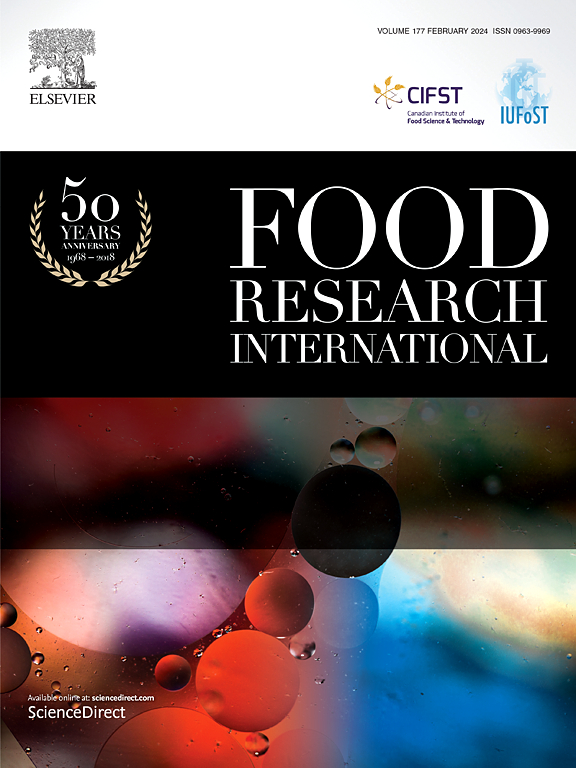Molecular mechanisms of Lycii Fructus (Goji berries) against xanthine dehydrogenase in hyperuricemia management: Integrating computational, metabolomic, and experimental approaches
IF 7
1区 农林科学
Q1 FOOD SCIENCE & TECHNOLOGY
引用次数: 0
Abstract
Lycii Fructus (LF), commonly known as Goji berries, has shown potential for managing hyperuricemia, though its underlying mechanisms remain poorly understood. This study employs a combination of network-based systems pharmacology, computer-aided drug discovery, untargeted metabolomics and experiments to explore the urate-lowering effects of LF. Molecular docking simulations of 3,760 LF compound-target interactions identified xanthine dehydrogenase (XDH) as a key target. Among the compounds, glycitein exhibited the highest binding affinity in molecular dynamics simulations. Metabolomics confirmed the presence of glycitein in LF particles, and it significantly reduced urate levels in hyperuricemia zebrafish models. Further in vitro assays and Cellular Thermal Shift Assays corroborated its inhibitory effect on xanthine oxidase. These findings suggest that glycitein may serve as a novel inhibitor of xanthine oxidase, with potential applications in nutraceuticals, functional foods, and drug development for hyperuricemia.

求助全文
约1分钟内获得全文
求助全文
来源期刊

Food Research International
工程技术-食品科技
CiteScore
12.50
自引率
7.40%
发文量
1183
审稿时长
79 days
期刊介绍:
Food Research International serves as a rapid dissemination platform for significant and impactful research in food science, technology, engineering, and nutrition. The journal focuses on publishing novel, high-quality, and high-impact review papers, original research papers, and letters to the editors across various disciplines in the science and technology of food. Additionally, it follows a policy of publishing special issues on topical and emergent subjects in food research or related areas. Selected, peer-reviewed papers from scientific meetings, workshops, and conferences on the science, technology, and engineering of foods are also featured in special issues.
 求助内容:
求助内容: 应助结果提醒方式:
应助结果提醒方式:


